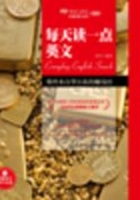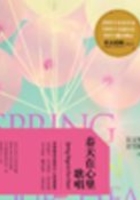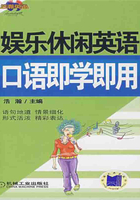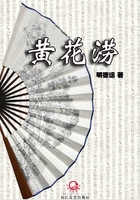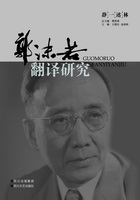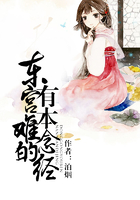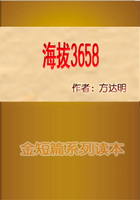Has our happiness floated upward with the rising economic tide? Are we happier today than in 1940, when two out of five homes lacked a shower or tub? When heat often meant feeding wood or coal into a furnace? When 35 percent of homes had no toilet?
Actually, we are not. Since 1957, the number of Americans who say they are “very happy” has declined from 35 to 32 percent. Meanwhile, the divorce rate has doubled, the teen suicide rate has nearly tripled, the violent crime rate has nearly quadrupled (even after the recent decline), and more people than ever(especially teens and young adults) are depressed.
I call this soaring wealth and shrinking spirit “the American paradox”. More than ever, we have big houses and broken homes, high incomes and low morale, secured rights and diminished civility. We excel at making a living but often fail at making a life. We celebrate our prosperity but yearn for purpose. We cherish our freedoms but long for connection. In an age of plenty, we feel spiritual hunger.
金钱买得到幸福吗?买不到!但是,钱多一点儿,幸福是不是也会多些呢?我们很多人会咧嘴一笑,点点头。我们相信,财富的多少与精神愉悦之间有些关联。多数人会说:我们确实想成为富人。现在,美国大学生中有四分之三的人认为,“经济的富足”是“非常重要”或“必不可少”的。金钱的确重要。
富人更幸福吗?研究人员发现,在一些贫困国家里,相对富足的确能使安康的可能性更大。因为我们需要食物、休息、庇护所和社会联系。
但是,生活中有这样一个令人惊讶的事实。在那些几乎每个人都能拥有生活必需品的国家里,财富的增长对幸福的影响并不大。收入和幸福之间的相互关系是“令人惊异的微小”。密歇根大学研究员罗纳德?英格利哈特在他的调查报告中是这样评述的——他曾对16个国家的17万人口作了调查。一旦人们的生活安逸了,增加的物质财富所带来的幸福感则会逐渐降低。第二张馅饼永远没有第一张味道鲜美,或者,第二次10万美元带来的兴奋感远不如第一次强烈。
甚至是彩票中奖者和《财富》杂志上选出的全美国最富有的前100人都表示,他们感受到的幸福只是比一般美国人稍微多一点点而已。发大财带来的只是暂时的快乐。但是,从长远来看,财富就像健康一样,完全缺失会使苦难滋生,但拥有并不能保证幸福。幸福似乎并不是得到我们想要的东西,而是想要我们拥有的东西。
经济浪潮回升,我们的幸福感是否会随之上涨呢?今天,我们是否比1940年更幸福呢?那时候,五分之二的家庭还没有淋浴或浴盆,往炉子里添一块木头或煤炭就是取暖了,35%的家庭没有卫生间。
事实上,我们并没比以前更幸福。从1957年以来,美国说自己“很幸福”的人数从35%降至32%。与此同时,离婚率是原来的2倍,青少年自杀率几乎是原来的3倍,犯罪率则高达原来的4倍(尽管最近有所降低),消极的人(特别是青少年)越来越多,超过了以往任何时候。
这种财富飞速增长,精神却不断委靡的状况,我称之为“美国矛盾”。我们拥有了大房子,家庭却破裂了;收入高了,精神却更低糜;有了可靠的权利,却失去了礼貌;我们善于谋生,却往往不会营造生活;我们庆祝成功,又怀念目标;我们珍视自由,却又渴望交流。在这个物质充裕的时代,我们的精神却感到饥渴。
精神世界的幸福与物质世界的幸福原本就是两个东西,它们可以相互补充,锦上添花。但是不能替换,也不能对等。
1. But a surprising_________ of life is that in countries where nearly everyone can afford life’s necessities, increasing affluence_________ surprisingly little.
2. Making it big brings temporary_________. But in the long run wealth is like_________: its utter absence can breed misery, but having it doesn’t guarantee_________. Happiness seems less a matter of getting what we_________ than of wanting what we have.
3. More than ever, we have big houses and_________ homes, high incomes and_________ morale, secured rights and diminished civility. We excel at making a living but often fail at making a_________.
1. 一旦人们的生活安逸了,增加的物质财富所带来的幸福感则会逐渐降低。
____________________________________________________________________________________________________________
2. 幸福似乎并不是得到我们想要的东西,而是想要我们拥有的东西。
____________________________________________________________________________________________________________
3. 在这个物质充裕的时代,我们的精神却感到饥渴。
____________________________________________________________________________________________________________
1. The correlation between income and happiness is “surprisingly weak”, observed University of Michigan researcher Ronald Inglehart in one 16-nation study of 170,000 people.
between... and:在……中间
_____________________________________________________________________________________________________________________
2. The second piece of pie, or the second $100,000, never tastes as good as the first.
as good as:和……几乎一样,实际上等于;和……一样好
____________________________________________________________________________________________________________
羡妒满花园
Garden of Envy
佚名 / Anonymous
I know gardeners well, for I am a gardener, too, but I experience gardening as an act of utter futility. I know their fickleness, I know their weakness for wanting in their own gardens the thing they have never seen before, or never possessed before, or saw in a garden (their friends’), something which they do not have and would like to have.
I would not be surprised if every gardener I asked had something definite that they liked or envied. Gardeners always have something they like intensely and in particular; at any moment, they like in particular this, or they like in particular that, nothing in front of them is repulsive and fills them with hatred, or this thing would not be in front of them. They only love, and they only love in the moment; when the moment has passed, they love the memory of the moment, they love the memory of that particular plant or that particular bloom, but the plant or the bloom itself they have moved on from, they have left it behind for something else, something new, especially something from far away, and from so far away, a place where they will never live (the Himalayas, just for example).

